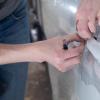Tinting Car Windows for Improved Fuel Efficiency
Introduction
When it comes to maximizing fuel efficiency, drivers often consider various factors such as vehicle maintenance, tire pressure, and driving habits. However, one factor that is often overlooked is the impact of window tinting on fuel efficiency. 3M window tinting for car windows can contribute to improved fuel efficiency in multiple ways.
Begin to understand the varied benefits of window tinting and how it can help conserve fuel and enhance overall efficiency.
Reducing Solar Heat
One of the primary ways that 3M window tinting can improve fuel efficiency is by reducing the amount of solar heat that enters the vehicle. When a vehicle is exposed to sunlight, the interior can heat up significantly, especially during hot summer months. This increase in temperature forces the air conditioning system to work harder to cool the cabin, resulting in greater fuel consumption.
By installing window tinting films, the solar heat that enters the vehicle can be significantly reduced. These films are designed to block a portion of the sun's rays, thus reducing the amount of heat that enters through the windows. With less heat entering the vehicle, the air conditioning system can operate more efficiently, reducing the need for it to work at maximum capacity. As a result, less fuel is consumed to power the air conditioning system, leading to improved fuel efficiency.
Minimizing the Need for Air Conditioning
Window tinting not only reduces solar heat but also helps to maintain a cooler interior temperature. By limiting the amount of heat that enters the vehicle, the need for air conditioning can be minimized or even eliminated in some cases. This is particularly true when the vehicle is parked under the sun for extended periods.
When a car is parked in direct sunlight, the interior can become extremely hot. Without window tinting, the heat buildup inside the vehicle can be overwhelming, necessitating the use of air conditioning to cool the cabin before driving. However, with tinted windows, the interior temperature remains relatively cooler, reducing the dependency on air conditioning. By relying less on the air conditioning system, drivers can conserve fuel and improve overall fuel efficiency.
Reducing the Load on the Electrical System
Window tinting can also help reduce the load on the vehicle's electrical system, further contributing to improved fuel efficiency. When the interior of a vehicle becomes excessively hot, the air conditioning system has to work harder to cool it down. This increased demand on the electrical system leads to higher energy consumption, which is ultimately powered by the vehicle's engine and fuel.
By reducing the solar heat that enters the vehicle, window tinting helps maintain a more comfortable interior temperature. As a result, the air conditioning system operates with less strain, requiring less electrical power from the vehicle's engine. This reduction in electrical load translates to less fuel consumption, enhancing fuel efficiency.
Aerodynamic Benefits
In addition to the thermal benefits, window tinting can also offer some aerodynamic advantages that contribute to fuel efficiency. The smooth surface of window tinting films helps to create a streamlined profile for the vehicle, reducing air resistance and drag. This, in turn, allows the vehicle to move through the air more efficiently, requiring less energy to maintain speed.
While the aerodynamic benefits of window tinting may be relatively modest compared to other factors, every small improvement counts when it comes to fuel efficiency. By reducing drag and improving the vehicle's aerodynamics, window tinting can help optimize fuel consumption and contribute to overall fuel efficiency.
Conclusion
Window tinting offers several benefits for improving fuel efficiency in vehicles. By reducing solar heat, window tinting helps to minimize the load on the air conditioning system, allowing it to operate more efficiently and consume less fuel. During hot weather, when sunlight can heat up the interior of the car, tinted windows play a crucial role in maintaining a cooler and more comfortable temperature. As a result, drivers are less likely to rely heavily on air conditioning, which can lead to significant fuel savings, particularly during long journeys or in areas with extreme temperatures.
Moreover, the aerodynamic advantages of window tinting further enhance fuel efficiency by reducing air resistance and drag. When the vehicle is in motion, wind resistance can have a notable impact on fuel consumption. Tinted windows create a smoother surface and reduce the turbulence caused by wind, enabling the vehicle to move more efficiently through the air. As a result, the engine doesn't have to work as hard, leading to improved fuel efficiency and reduced emissions.
More to Read:
Previous Posts:




